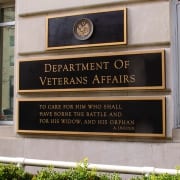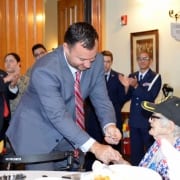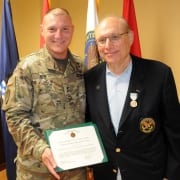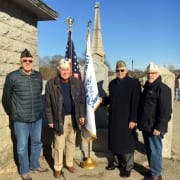The Private Care Push
By PNC Paul D. Warner, LL.M., Ph.D.
In June 2016, The Commission on Care issued a 292-page document containing eighteen recommendations for the improvement of the operations of the Department of Veterans Affairs system. The one which has most interested the Administration appears to be the use of private doctors.
Last year Congress passed a bill which they claimed would eliminate the arbitrary rules relating to when the VA would pay for the use private doctors by veterans. The old rules governing the use of private doctors were that the veteran would have at least a 30 day wait or a 40-mile distance to obtain care at a VA installation. The VA has proposed a 20 day wait for primary care or a 28 day wait for specialty care. The mileage requirement is replaced by a drive time standards which are 30 minutes for primary care or 60 minutes for specialty care. Clearly these are simply a new set of arbitrary rules. The only thing clear about the new rules is that they are less stringent and will probably allow more veterans to seek private care. Data provided by the VA shows that, currently, over about one-half the VA’s primary care sites have wait times longer the 20 days and specialty wait times longer the 28 days (there is some question about the reliability of this data).
The expansion of private care will come at the expense of the VA’s own health system. The VA estimates that the cost for privitization will cost from $13.9 to 32.1 billion dollars over the next five years. It appears that this money will come the VA’s budget, not from additional federal funding.
The following questions are some of those remaining to be answered:
- How many more veterans will be eligible for private care under the proposed standards?
- How will drive times be calculated?
- Will the greater availability of private doctors result in more veterans using this option instead of their private insurance or Medicare?
- Will veterans applying for private care get their appointments faster than at the VA?
The unanswered questions could dramatically change the VA’s effectiveness and costs.
There appears to be much pressure from the private sector to privatize the VA and make its funds available to for-profit organizations (e.g., private health insurance and pharmaceutical companies). In particular there are three private citizens who have the Department of VA’s ear. A Freedom of Information Act request and interviews with former administration officials revealed that they have been extensively involved in the VA’s policies and personnel matters. They have direct contact with the President who appears to be consulting with them about the VA. They have not followed the Federal Advisory Committee of 1972 which controls the activities of non-governmental advisors.
It does not look good for the VA and this is why many veterans’ organizations including Jewish War Veterans, American Legion and Veterans of Foreign wars are opposed to the proposed changes. There is one “veterans” organization which supports them, the Concerned Veterans of America which is supported by organizations whose primary goal is to totally privatize the VA.
Volume 73. Number 1. 2019










